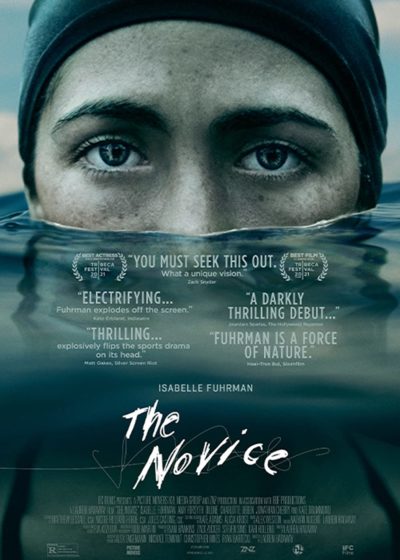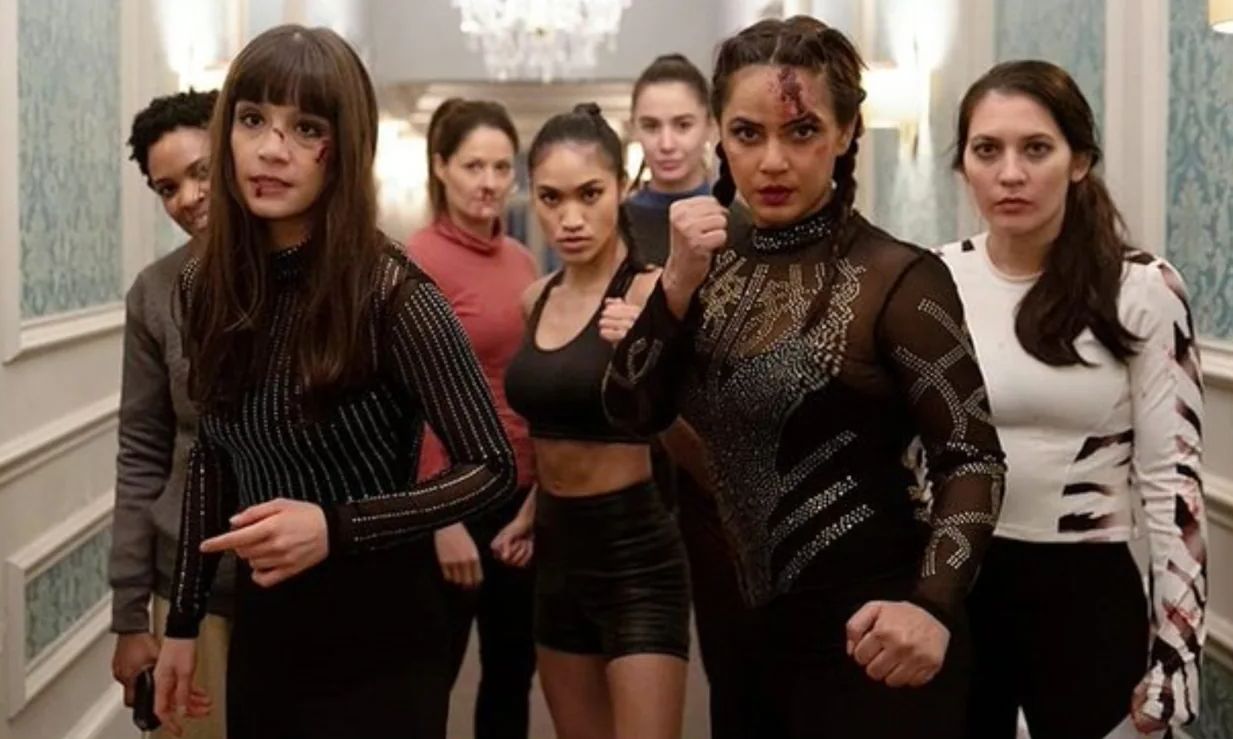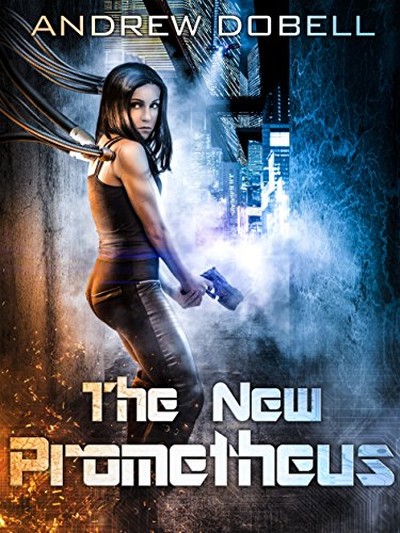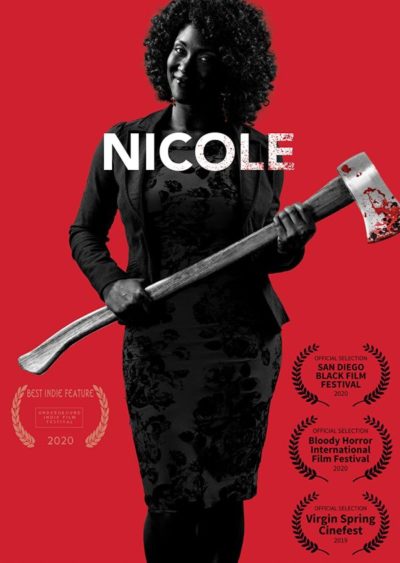★★★
“Just deserts.”
 This is a sprightly and energetic Chinese knock-off, borrowing heavily from Resident Evil and Aliens in particular. There’s a research lab deep underground, in the middle of the Gobi Desert, which has suddenly gone radio silent. The research they were doing there was… well, I’m not 100% certain quite what it involved. While a lot of the dialogue in this is in “English”, I’m using quotes advisedly. Especially on the scientific front, it seems to be more of an enthusiastic word-salad, like “by chance, precise data from the gamma variable appear,” throwing jargon about radiation and DNA splicing into the mix, in lieu of anything coherent. Anyway, it seems Ohm Technology are into some fairly shady shit, to nobody’s surprise.
This is a sprightly and energetic Chinese knock-off, borrowing heavily from Resident Evil and Aliens in particular. There’s a research lab deep underground, in the middle of the Gobi Desert, which has suddenly gone radio silent. The research they were doing there was… well, I’m not 100% certain quite what it involved. While a lot of the dialogue in this is in “English”, I’m using quotes advisedly. Especially on the scientific front, it seems to be more of an enthusiastic word-salad, like “by chance, precise data from the gamma variable appear,” throwing jargon about radiation and DNA splicing into the mix, in lieu of anything coherent. Anyway, it seems Ohm Technology are into some fairly shady shit, to nobody’s surprise.
A group is sent out to find out what happened, and more importantly, bring everything back on line. The only man who can do it, apparently, is Doctor Haven, a kinda autistic super-scientist, who’d like to get his hands on the data. To protect him, three Lara Croft-alikes are assigned: leader Bai Zhi (Yu), the flirty Bi Jiao (Wu); and veteran Gui Che (Xu). Also coming along are a bunch of cannon fodder, and leader of the mission, Principal Gabon (Ger), who is clearly evil because he’s played by a Westerner. They haven’t even reached the base before they encounter the local fauna: scorpions that can swim through human flesh like water. So if you stand on one, it’ll pop out the top of your head.
These are, at least, only normal sized. But when the expeditions enters into the base, the women are appalled to discover this isn’t the rescue mission intended, with any survivors being ruthlessly gunned-down by Gabon’s men. [Those foreign devils…] Turns out he intends to seize the technology and use it for nefarious purposes, but not everyone is in favor of this. The heroic trio rebel, Dr. Haven refuses to get the systems running again, and even some of his own men decide they can’t in good conscience take part in Gabon’s plan. All of which would be merely morally interesting, if it weren’t for the F-sized version of the scorpions roaming the facility due to leakage of gamma rays. Or something.
You’d be hard-pushed to identify anything new or particularly innovative here. But it keeps moving, without significant downtime, and there’s enough background to make it feel more than you’re just watching a video-game. For instance, Bai Zhi is there partly to look for her fiance, who worked at the base before he suddenly vanished. There’s also a lot more interaction between the characters and the monsters than we usually see in this kind of thing. Though the quality of the combination FX is uneven, and the editing of the action is sometimes choppily incoherent. No great matter. This is a film pitting soldiers against freakin’ giant scorpions, and firmly checks the boxes of what you would want and expect from such a production.
Dir: Yun-Fei Lu
Star: Sai-Chu Yu, You-Xuan Wu, Dong-Mei Xu, Dieter Ger
This review originally appeared on Film Blitz.





 Danielle Ryan’s quest for a movie worthy of her talents meets another swing and a miss. I guess you have to give credit to this one: it is at least trying to go in a different direction, making the Mexican cartel the
Danielle Ryan’s quest for a movie worthy of her talents meets another swing and a miss. I guess you have to give credit to this one: it is at least trying to go in a different direction, making the Mexican cartel the  I was going to go with “Tree’s company” as the tagline, before I realized I’ve actually used that in three separate, forest-set movies. So I decided to adjust it slightly, and what’s above is indeed very apt. There is a cast of three (3) and the entire thing unfolds in the woods. There isn’t a single set or interior shot in the whole film. Indeed, if you’d asked me, I’d have said this had all the hallmarks of a COVID-era project, designed to be shot with a small cast and in a nicely sanitary, outdoor location. Not so, even though Tubi dates it as 2020. There was a screening in April 2019, well before anyone had heard of Wuhan, and the IMDb gives it a year of 2017.
I was going to go with “Tree’s company” as the tagline, before I realized I’ve actually used that in three separate, forest-set movies. So I decided to adjust it slightly, and what’s above is indeed very apt. There is a cast of three (3) and the entire thing unfolds in the woods. There isn’t a single set or interior shot in the whole film. Indeed, if you’d asked me, I’d have said this had all the hallmarks of a COVID-era project, designed to be shot with a small cast and in a nicely sanitary, outdoor location. Not so, even though Tubi dates it as 2020. There was a screening in April 2019, well before anyone had heard of Wuhan, and the IMDb gives it a year of 2017. For the first hour, you may be forgiven for wondering if there has been some kind of mistake, because the poster bears almost no resemblance to what happens in the film. Oh, it’s the same actress, to be sure, and she is a schoolgirl. But it appears, rather than the war story promised, you have strayed into a teenage drama. In it, Ai (Seino) is a talented but troubled student, who seems to be suffering from some kind of post-traumatic stress disorder. The special treatment she receives at school brings her enmity as a result, both from her class-mates and the er homeroom teacher (Kaneko). Though she finds solace in art, including a mysterious major project on which she is working, housed in the school auditorium.
For the first hour, you may be forgiven for wondering if there has been some kind of mistake, because the poster bears almost no resemblance to what happens in the film. Oh, it’s the same actress, to be sure, and she is a schoolgirl. But it appears, rather than the war story promised, you have strayed into a teenage drama. In it, Ai (Seino) is a talented but troubled student, who seems to be suffering from some kind of post-traumatic stress disorder. The special treatment she receives at school brings her enmity as a result, both from her class-mates and the er homeroom teacher (Kaneko). Though she finds solace in art, including a mysterious major project on which she is working, housed in the school auditorium. This SF novel takes place in the future where the human Commonwealth is engaged in a brutal space war against the militaristic Shrehari Empire – imagine Klingons on krack, perhaps. They have superior technology, but humanity’s ability to think outside the box and improvise has helped level the playing field. Siobhan Dunmoore has just survived – emphasis on “just” – a battle against the Imperial cruiser Tol Vakash of Captain Brakal, forcing him to retreat by attempting a kamikaze crash of her badly-damaged craft into his. As a “reward”, she is assigned command of the Stingray, a craft with a bad reputation. Its previous captain is now facing a Disciplinary Board, and the crew are barely even trying. It seems Dunmoore has been set up to fail, and she’ll need to overcome resistance from enemies both domestic and alien, as well as overt and covert, before she can even think about going another round with Captain Brakal.
This SF novel takes place in the future where the human Commonwealth is engaged in a brutal space war against the militaristic Shrehari Empire – imagine Klingons on krack, perhaps. They have superior technology, but humanity’s ability to think outside the box and improvise has helped level the playing field. Siobhan Dunmoore has just survived – emphasis on “just” – a battle against the Imperial cruiser Tol Vakash of Captain Brakal, forcing him to retreat by attempting a kamikaze crash of her badly-damaged craft into his. As a “reward”, she is assigned command of the Stingray, a craft with a bad reputation. Its previous captain is now facing a Disciplinary Board, and the crew are barely even trying. It seems Dunmoore has been set up to fail, and she’ll need to overcome resistance from enemies both domestic and alien, as well as overt and covert, before she can even think about going another round with Captain Brakal. Rowing is not a pastime to which I’ve ever given much thought. It’s the backdrop for this, and is based (to some extent) on writer-director Hadaway’s experiences of the sport at college. Her cinematic background is in sound editing, where she worked on films such as The Hateful Eight and – probably of most relevance here – Whiplash. The latter was a study of obsession in the pursuit of talent, and is echoed in the story here.
Rowing is not a pastime to which I’ve ever given much thought. It’s the backdrop for this, and is based (to some extent) on writer-director Hadaway’s experiences of the sport at college. Her cinematic background is in sound editing, where she worked on films such as The Hateful Eight and – probably of most relevance here – Whiplash. The latter was a study of obsession in the pursuit of talent, and is echoed in the story here. Madison isn’t without an action pedigree, having directed rather good short,
Madison isn’t without an action pedigree, having directed rather good short,  Although I first experienced this series through the two sequel novellas, this second installment of Armstrong’s Nadia Stafford trilogy would be best read after the series opener, Exit Strategy. References are made to events in the first book, and to parts of Nadia’s backstory which are detailed there, and these are much more meaningful if you’ve read the first installment. Even more importantly, Armstrong really introduces Nadia’s complex character and current circumstances in depth in the first book; the development she undergoes here presupposes that foundation. (That’s also true for other characters from that book who continue to play roles here; you need the full-orbed picture to understand them.)
Although I first experienced this series through the two sequel novellas, this second installment of Armstrong’s Nadia Stafford trilogy would be best read after the series opener, Exit Strategy. References are made to events in the first book, and to parts of Nadia’s backstory which are detailed there, and these are much more meaningful if you’ve read the first installment. Even more importantly, Armstrong really introduces Nadia’s complex character and current circumstances in depth in the first book; the development she undergoes here presupposes that foundation. (That’s also true for other characters from that book who continue to play roles here; you need the full-orbed picture to understand them.) Even with her off-the-books side income, Nadia can’t afford to pay more than a tiny staff at her guest lodge; but out of kindness, she’s given a job as assistant housekeeper to a 17-year-old girl from the nearby small town of White Rock, Sammi Ernst. Sammi’s foul-mouthed, barely literate, and has a chip on her shoulder; the latter isn’t surprising, given her life situation. She’s the out-of-wedlock daughter of Janie Ernst. Both women are widely looked down on in the community –Janie because she’s a drunken, mean-tempered, self-centered deadbeat, and Sammi mainly because she has Janie for an (abusive) mother. Also a single mom herself, Sammi’s not promiscuous like Janie (she had a single affair, with a visiting rich college kid who wasn’t interested in marriage or fatherhood, and left her to bear his unacknowledged daughter alone); and also unlike her own mom, she genuinely loves baby Destiny, and wants to work to support her, rather than making a dead-end career out of welfare dependency as Janie has.
Even with her off-the-books side income, Nadia can’t afford to pay more than a tiny staff at her guest lodge; but out of kindness, she’s given a job as assistant housekeeper to a 17-year-old girl from the nearby small town of White Rock, Sammi Ernst. Sammi’s foul-mouthed, barely literate, and has a chip on her shoulder; the latter isn’t surprising, given her life situation. She’s the out-of-wedlock daughter of Janie Ernst. Both women are widely looked down on in the community –Janie because she’s a drunken, mean-tempered, self-centered deadbeat, and Sammi mainly because she has Janie for an (abusive) mother. Also a single mom herself, Sammi’s not promiscuous like Janie (she had a single affair, with a visiting rich college kid who wasn’t interested in marriage or fatherhood, and left her to bear his unacknowledged daughter alone); and also unlike her own mom, she genuinely loves baby Destiny, and wants to work to support her, rather than making a dead-end career out of welfare dependency as Janie has. The setting is a dystopian version of London, which has become separated into two distinct halves, and classes of residents. It’s a world in which cybernetic enhancements are common. But they come at the cost of a debt – sometimes, virtual enslavement – to the powerful corporations who supply and maintain them. Frankie has resisted these, preferring to retain her humanity, and journeys into the dangerous undercity, to help those less fortunate. But on one such trip, she’s shot and left for dead. Rescued by the renegade Doctor Xenox, she wakes to find herself in a new, artificial and highly-powered body. She’s not too happy about it. Things get worse, for the doctor’s erstwhile corporate employers, Psytech, consider Frankie v2.0 as their property, and will stop at nothing to get her under control. As a result, with the help of the Doctor, and cop Gibson, she has to fend off the assembled forces of Psytech.
The setting is a dystopian version of London, which has become separated into two distinct halves, and classes of residents. It’s a world in which cybernetic enhancements are common. But they come at the cost of a debt – sometimes, virtual enslavement – to the powerful corporations who supply and maintain them. Frankie has resisted these, preferring to retain her humanity, and journeys into the dangerous undercity, to help those less fortunate. But on one such trip, she’s shot and left for dead. Rescued by the renegade Doctor Xenox, she wakes to find herself in a new, artificial and highly-powered body. She’s not too happy about it. Things get worse, for the doctor’s erstwhile corporate employers, Psytech, consider Frankie v2.0 as their property, and will stop at nothing to get her under control. As a result, with the help of the Doctor, and cop Gibson, she has to fend off the assembled forces of Psytech. If you came into this with absolutely no previous knowledge (including the poster on the right!), you’d be forgiven if you spent the first forty minutes thinking this was an independent drama about the perils of professional dating life in the big city. Then, suddenly, it’s
If you came into this with absolutely no previous knowledge (including the poster on the right!), you’d be forgiven if you spent the first forty minutes thinking this was an independent drama about the perils of professional dating life in the big city. Then, suddenly, it’s